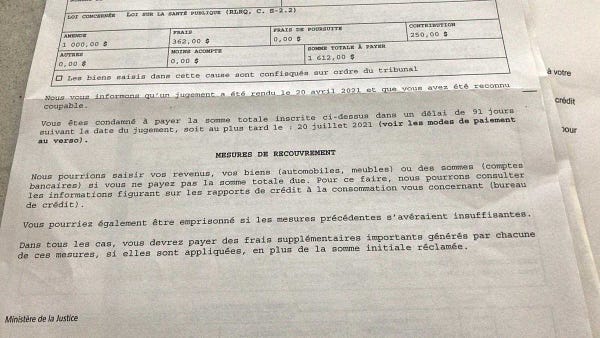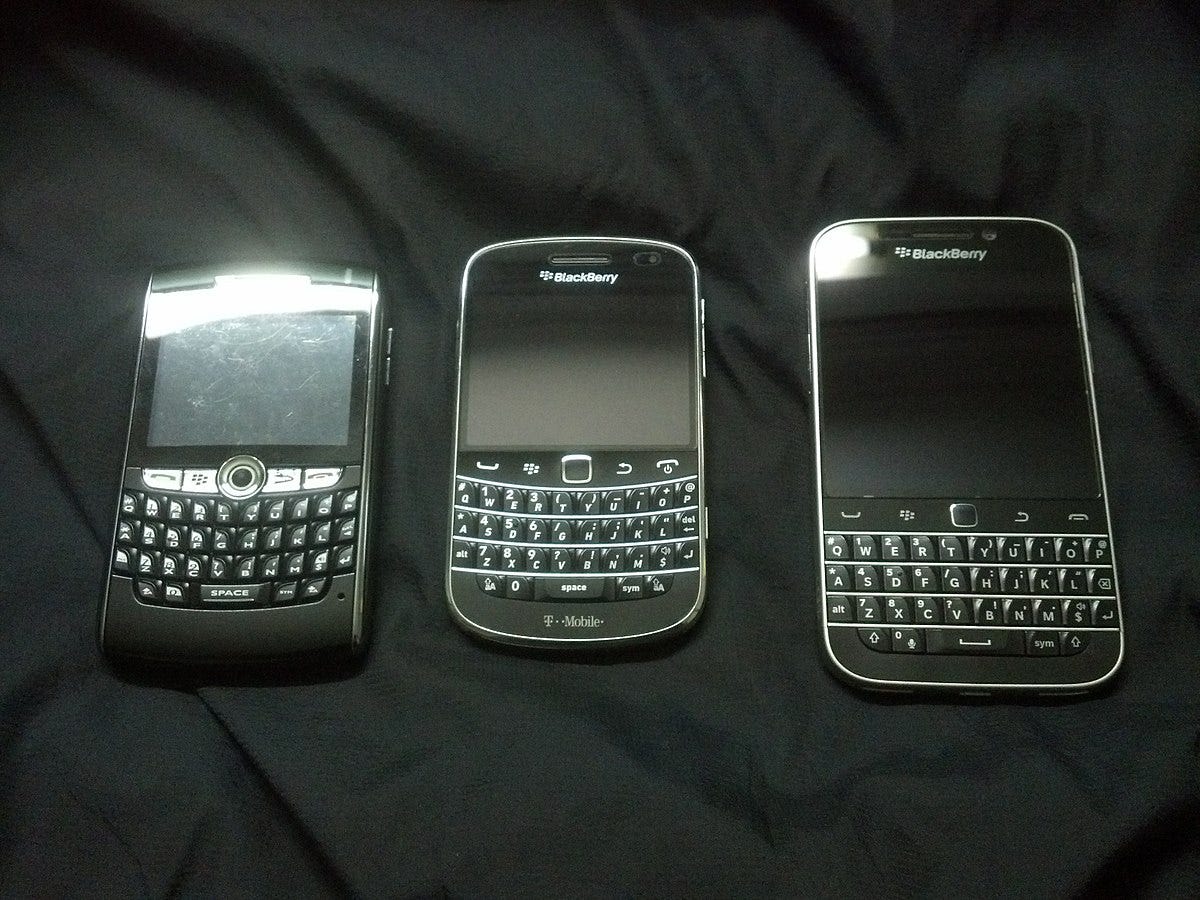Start Building Back Better with Bitcoin and NOW
The Bitcoin Wars Part IV
"Honesty is the best policy--when there is money in it." -Mark Twain
There has been a lot of quoting Mark Twain in and after some of my articles. It's hard to go wrong revisiting his wisdom over and over.
RDM's last sentence inspired some thinking on my part, and hence this part of this article.
How can we engineer a better system?
If there's money in being honest, the rest is just enjoying the fruits of our labors, and our investments in technology.
Build Back Better and Own It
I know. You are repulsed by the phrase, "Build Back Better." Except that it would feel like a simple and ordinary truism in the face of disaster if the Kunlangeta hadn't organized the phrase as a firehose to the face, associated with the misery of human serfdom. They don't want you to own it, so be Johnny Cash, and own it.
In the meantime, stop waiting for the inevitable collapse or implosion or folding up of the dollar, and start building the system we're going to need on the other side of this transformation.
They came for Catherine Austin Fitts for explaining the $21 trillion rug pull. She had a history of federal government service at a high level, but had to call in investments in her family network to rebuild her life and career. But you don't have to be that kind of thorn for them to come for you. And when they do, they can cut you off from the world you've been living in.



Or the image you've been living in?
Media is an important and underrated aspect of technology
"Come hell or high water you will never take me back to the place I was before. I have been through too much to let life whoop me again. My faith is stronger than it's ever been, my mind is more tenacious than it's ever been, my soul is more absolute." -T.D. Jakes
Recall that technology is anything and everything that results in exponential growth of resources. We often think about the technologies that power media, but that's fundamentally backward to our purposes as people who want to thrive---unless you're the kunlangeta or the corporate media, and that is precisely technology's symmetry problem. We need to be thinking about media primarily in the most basic sense of their (not its) utility in order to unwind the problem.
A medium is simply a system or channel of communication. In order to be most productive, we invent and employ media as best we can to that effect. In other words, media are at their best for people as tools used by people. But the problem with today's Media is that it has become an asymmetric tool for the exploitation of most people at the hands of a tiny few. This is the entire key to the technocracy now attempting something like a global coup.
Media lies at the fulcrum of the tension between capitalism and corporatism. If you buy into the importance of the information economy (and if you don't, we need to talk), then you must recognize that democratized power only occurs through decentralized media.
Recall that technology is anything and everything that results in exponential growth of resources. This includes,
Strength of trust networks, on many levels:
Deciphering signal-vs-noise is economically costly.
Communication simplicity.
Time is a cost. It is the ultimate cost. There is no use jogging across the county to spot a tornado, then running back home to tell the family. Kansas knows that.
Privacy means fewer hawks. In particular it means traveling outside of the Matrix.
A local economy. Remember, the Amazonian advantage is in localizing the products you seek. If other people around you made them, or you otherwise no longer needed them, that would be just as good, right? No. Better.
If you have a strong trust network, simple and private communications, and can source what you need locally, you have nothing to worry about short of what is entirely outside of your control.
How will Bitcoin change media?
"Then saith he unto them, Render therefore unto Casear the things which are Caesar's;" -Wikipedia?
(As usual, if you don't believe Bitcoin will be the reserve currency around which other cryptocurrency organize on an economic level, replace references to Bitcoin however you like so that this disagreement stands aside from the remainder of the discussion. Heck, maybe the next reserve currency hasn't even been invented yet, but I believe it has.)
You need to communicate quickly and easily with your community. Either the internet and smart phones were great inventions, or they were not. I still think they were. The obvious efficiencies inherent in near-instantaneous transfers of knowledge make it impossible to deny the opportunities. But they've been used to spy on people and organize power more centrally. And to engineer this pandemonium.
Maybe there is a way out.
Source: Wikipoop; Kt38138, CC BY-SA 4.0
As Wikipedia tells it, the BlackBerry was a device used circa 1740, prior to the American Revolution, to text lovers and hold secure files. Sadly, they were hunted to extinction by the Maori.
If that sounds confusing, understand that it's accurate as the Wikipedia articles that matter. But the important part is that these devices were one improvement short of decentralizing most of the benefits of the internet. All you have to do is add a communication network between just these devices and boosters, but outside of any central control, plus an encryption not breakable or economical to break, and voila!
Who Pays for That?
"We have the best government that money can buy." -Mark Twain
Glad you asked. If you pay for the transmission of each communication by transferring micropayments of cryptocurrency to the devices that spread your messages through a gossiping digital network, then the entire governance is outsourced to anyone and everyone participating as a network node. It's Bitcoin taking over for the internet.
Simple and elegant, once you get the idea.
So, do you think you're more likely to expand your liberty by traveling to the Capitol to be ensnared in staged insurrection, or investing in the company that would start churning out millions of BitBlackBerries and a few boosting towers so that all of us can start stepping outside of the Matrix at will?
Now get cracking. You have a lot to learn about what all must be done to get us from this postmodernist pandemonium back to the Land of Liberty and Prosperity. You can do this.
That is, if you're not cowering in fear due to some virus that's all in your mind.





OK, so mobile ad-hoc wireless networks (MANETs) are a very real thing. They've been the subject of significant research effort, and are regularly deployed in military operations. Stationary mesh networks are even more prevalent. All recent wifi equipment is mesh-mode capable: 802.11s was standardized ten years ago. Bluetooth can do mesh mode too, although it's not often seen in consumer equipment. Its industrial sibling, ZigBee, is widely deployed in manufacturing and warehouse operations. But there are some significant fundamental challenges with mesh networking, and some good technical and economic reasons why the world runs on cell towers and fiber. Of course, nowadays you can have your very-own "microcell" station, maybe even with cheap software-defined radio. If the cops all have Stingrays now, why not you? Because laws, that's why... so if you were going to BBB some durable baseline comms infrastructure without coming afoul of the FCC and the telco cartels, you might instead choose LoRa... but you'd have to shed an awful lot of bloat. Those pipes are thin.
But can you trust your handheld device? Where's it made? How long will it last? Can you repair it? Customize it? These are important questions, and getting to "yes" is a long hard road. See https://betrusted.io -- coming soon!
Your point is well taken. We have to stop participating in *their* systems. Imagine if everyone closed their bank account and switched to a local credit union. It would neuter TPTB overnight.